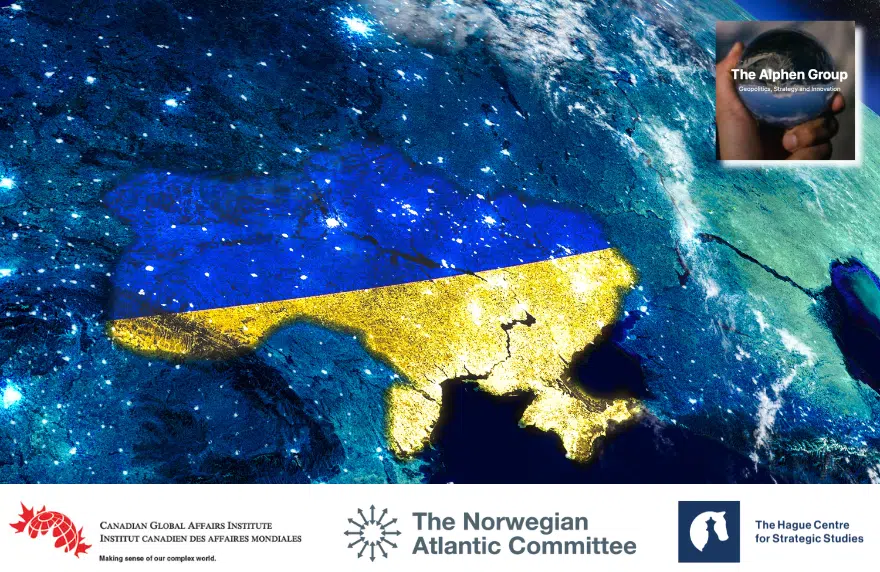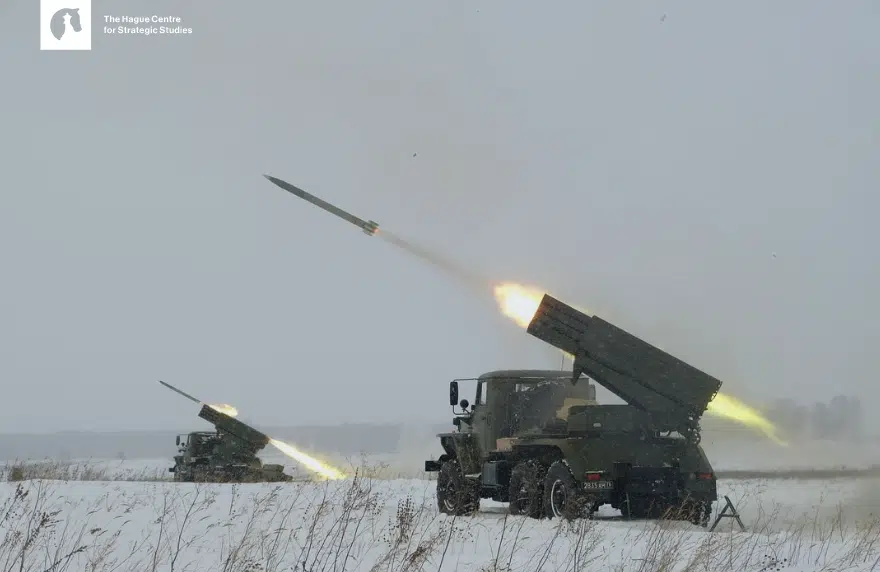De Russische aanvalsoorlog op Oekraïne gaat zijn tweede jaar in. Het vooruitzicht van een totale Russische overwinning – die de volledige verbrokkeling van een onafhankelijke Oekraïense staat zou betekenen – hoewel zeker niet onmogelijk, lijkt ver weg. Oekraïne zal echter alleen zegevieren met aanhoudende en uitgebreide Westerse steun.
Samen met een groep bestaande uit oud ministers, voormalig secretarissen-generaal van de NAVO, Amerikaanse generaals, oud Commandanten der Strijdkrachten en andere experts, schreef Prof. Rob de Wijk, oprichter van het Den Haag Centrum voor Strategische Studies (HCSS) en hoogleraar internationale betrekkingen aan de Universiteit van Leiden, een strategie om de toekomst van Oekraïne veilig te stellen.
De Westerse definitie van succes moet volgens de experts van The Alphen Group het herstel van Oekraïne als een veilige en soevereine Europese democratie blijven, met alle rechten en verantwoordelijkheden van dien. De kritieke kwestie die deze Oekraïne-strategie behandelt, is de reikwijdte en omvang van de Westerse steun die nodig is om dat doel te versterken op diplomatiek, informatief, militair en economisch gebied.
De belangrijkste aanbevelingen uit deze “Comprehensive Strategy to secure Ukraine’s Future” van The Alphen Group (TAG) zijn:
- Publiceer met alle betrokken landen een Oekraïneverklaring waarin aan Rusland wordt duidelijk gemaakt welke verdere stappen ter afschrikking of als reactie op verdere escalatie worden genomen;
- Organiseer voor de langere termijn een Conferentie van Democratieën over de Europese veiligheidsorde;
- Reserveer, mede als onderdeel van afschrikking, wapenleveranties specifiek voor de fase waarin zo nodig Rusland zelf wordt aangegrepen (F-16, ATACMS en TAOC);
- Ontwikkel een Guarantee of Ukrainian Security met veiligheidsgaranties dat voortbouwt op het NATO Enhanced Opportunities Partner Program;
- Ontwikkel een raammerk voor wederopbouw van land en krijgsmacht waarbij de VS 75% van de militaire hulp betaalt, en 25% van de wederopbouw. Voor de G7 + partners wordt het omgekeerde voorgesteld.
Een voortdurende opmars van Oekraïne en herovering van bezette gebieden kan niet worden verondersteld; Rusland heeft mogelijk voldoende capaciteit om Oekraïense offensieven af te slaan en een patstelling te forceren. Rusland bezit veel meer industriële capaciteit dan Oekraïne en dat is precies de reden waarom Westerse steun onontbeerlijk blijft.
Naast de toekomst van Oekraïne staat in deze oorlog ook het vermogen van het Westen op het spel om zijn eigen strategische omgeving en de Europese veiligheidsorde vorm te geven, op een manier die de beginselen van de op regels gebaseerde internationale orde handhaaft die tot stand is gekomen na de Tweede Wereldoorlog.
De Oekraïne-strategie heeft 3 doelstellingen:
- een einde maken aan de oorlog op voor Kiev aanvaardbare voorwaarden die de Russen de vruchten van agressie ontzeggen en ervoor zorgen dat Rusland haar buurland niet opnieuw binnenvalt;
- om Oekraïne te herstellen als een onafhankelijke staat met volledige controle over zijn internationaal erkende grenzen, met het vermogen om elke verdere Russische agressie af te schrikken en te verslaan;
- om potentiële agressors duidelijk te maken dat de democratische naties de op regels gebaseerde internationale orde zullen verdedigen.
Er zal een nieuw Europees veiligheidssysteem nodig zijn om de eerbiediging van de beginselen van het internationaal recht die Rusland heeft geschonden te herstellen en om na verloop van tijd de basis te leggen voor een nieuwe relatie met Rusland, ongeacht de uitkomst van de oorlog. En het is op korte termijn ook noodzakelijk om voldoende steun in de Westerse publieke opinie te behouden.
De Oekraïne-strategie is als PDF te downloaden op de websites van The Alphen Group, het Den Haag Centrum voor Strategisch Studies (HCSS), de Norwegian Atlantic Committe (DNAC), de Canadian Global Affairs Institute, de Atlantic Council en het blog van prof. Julian Lindley-French.
Note: This second edition was prepared specifically for the European Parliament. It contains five elaborated proposals that have been worked up by members of The Alphen Group (TAG) since the first edition was published in February 2023. These proposals are: A Declaration for Ukraine; Mutual Commitments of Defence, Security and Solidarity; A Conference of Democracies on European Peace and Security; G7 plus Partners Ukraine Joint Plan of Action for the Russo-Ukraine War; and An Accelerated NATO Ukraine Membership Action Plan.






